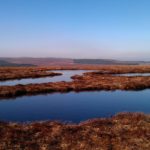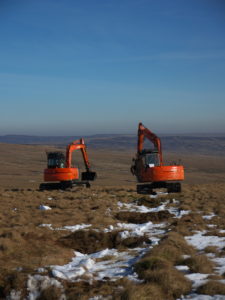 A new digital publication to help peatland restoration projects make a strong case for investment has been produced by the Yorkshire Integrated Catchment Solutions Programme (iCASP).
A new digital publication to help peatland restoration projects make a strong case for investment has been produced by the Yorkshire Integrated Catchment Solutions Programme (iCASP).
A ‘User Guide for Valuing the Benefits of Peatland Restoration’ explains very simply how different methods can be used to evaluate benefits such as flood risk reduction, carbon storage, water quality improvements and recreational amenity.

 Efforts to restore Yorkshire’s vast peat bogs will soon be getting a welcome boost, thanks to a new project being developed by the Yorkshire Integrated Catchment Solutions Programme (iCASP).
Efforts to restore Yorkshire’s vast peat bogs will soon be getting a welcome boost, thanks to a new project being developed by the Yorkshire Integrated Catchment Solutions Programme (iCASP).